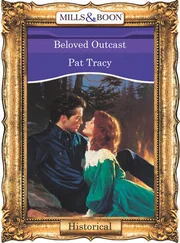She turned finally and ran through the woods to the stream.
Standing close to its edge she watched her reflection there. When Denver's face joined hers, they stared at each other in the water.
"You did it, I saw you," said Denver.
"What?"
"I saw your face. You made her choke."
"I didn't do it."
"You told me you loved her."
"I fixed it, didn't I? Didn't I fix her neck?"
"After. After you choked her neck."
"I kissed her neck. I didn't choke it. The circle of iron choked it."
"I saw you." Denver grabbed Beloved's arm.
"Look out, girl," said Beloved and, snatching her arm away, ran ahead as fast as she could along the stream that sang on the other side of the woods.
Left alone, Denver wondered if, indeed, she had been wrong. She and Beloved were standing in the trees whispering, while Sethe sat on the rock. Denver knew that the Clearing used to be where Baby Suggs preached, but that was when she was a baby. She had never been there herself to remember it.124 and the field behind it were all the world she knew or wanted.
Once upon a time she had known more and wanted to. Had walked the path leading to a real other house. Had stood outside the window listening. Four times she did it on her own-crept away from 12 4 early in the afternoon when her mother and grandmother had their guard down, just before supper, after chores; the blank hour before gears changed to evening occupations. Denver had walked off looking for the house other children visited but not her. When she found it she was too timid to go to the front door so she peeped in the window. Lady Jones sat in a straight-backed chair; several children sat cross-legged on the floor in front of her. Lady Jones had a book. The children had slates. Lady Jones was saying something too soft for Denver to hear. The children were saying it after her. Four times Denver went to look. The fifth time Lady Jones caught her and said, "Come in the front door, Miss Denver. This is not a side show."
So she had almost a whole year of the company of her peers and along with them learned to spell and count. She was seven, and those two hours in the afternoon were precious to her. Especially so because she had done it on her own and was pleased and surprised by the pleasure and surprise it created in her mother and her brothers. For a nickel a month, Lady Jones did what whitepeople thought unnecessary if not illegal: crowded her little parlor with the colored children who had time for and interest in book learning. The nickel, tied to a handkerchief knot, tied to her belt, that she carried to Lady Jones, thrilled her. The effort to handle chalk expertly and avoid the scream it would make; the capital w, the little i, the beauty of the letters in her name, the deeply mournful sentences from the Bible Lady Jones used as a textbook. Denver practiced every morning; starred every afternoon. She was so happy she didn't even know she was being avoided by her classmates-that they made excuses and altered their pace not to walk with her. It was Nelson Lord-the boy as smart as she was-who put a stop to it; who asked her the question about her mother that put chalk, the little i and all the rest that those afternoons held, out of reach forever. She should have laughed when he said it, or pushed him down, but there was no meanness in his face or his voice. Just curiosity. But the thing that leapt up in her when he asked it was a thing that had been lying there all along.
She never went back. The second day she didn't go, Sethe asked her why not. Denver didn't answer. She was too scared to ask her brothers or anyone else Nelson Lord's question because certain odd and terrifying feelings about her mother were collecting around the thing that leapt up inside her. Later on, after Baby Suggs died, she did not wonder why Howard and Buglar had run away. She did not agree with Sethe that they left because of the ghost. If so, what took them so long? They had lived with it as long as she had. But if Nelson Lord was right-no wonder they were sulky, staying away from home as much as they could.
Meanwhile the monstrous and unmanageable dreams about Sethe found release in the concentration Denver began to fix on the baby ghost. Before Nelson Lord, she had been barely interested in its antics.
The patience of her mother and grandmother in its presence made her indifferent to it. Then it began to irritate her, wear her out with its mischief. That was when she walked off to follow the children to Lady Jones' house-school. Now it held for her all the anger, love and fear she didn't know what to do with. Even when she did muster the courage to ask Nelson Lord's question, she could not hear Sethe's answer, nor Baby Suggs' words, nor anything at all thereafter. For two years she walked in a silence too solid for penetration but which gave her eyes a power even she found hard to believe. The black nostrils of a sparrow sitting on a branch sixty feet above her head, for instance. For two years she heard nothing at all and then she heard close thunder crawling up the stairs. Baby Suggs thought it was Here Boy padding into places he never went. Sethe thought it was the India-rubber ball the boys played with bounding down the stairs.
"Is that damn dog lost his mind?" shouted Baby Suggs.
"He's on the porch," said Sethe. "See for yourself."
"Well, what's that I'm hearing then?"
Sethe slammed the stove lid. "Buglar! Buglar! I told you all not to use that ball in here." She looked at the white stairs and saw Denver at the top.
"She was trying to get upstairs."
"What?" The cloth she used to handle the stove lid was balled in Sethe's hand.
"The baby," said Denver. "Didn't you hear her crawling?"
What to jump on first was the problem: that Denver heard anything at all or that the crawling-already? baby girl was still at it but more so, The return of Denver's hearing, cut off by an answer she could not hear to hear, cut on by the sound of her dead sister trying to climb the stairs, signaled another shift in the fortunes of the people of 124. From then on the presence was full of spite. Instead of sighs and accidents there was pointed and deliberate abuse. Buglar and Howard grew furious at the company of the women in the house, and spent in sullen reproach any time they had away from their odd work in town carrying water and feed at the stables. Until the spite became so personal it drove each off. Baby Suggs grew tired, went to bed and stayed there until her big old heart quit. Except for an occasional request for color she said practically nothing-until the afternoon of the last day of her life when she got out of bed, skipped slowly to the door of the keeping room and announced to Sethe and Denver the lesson she had learned from her sixty years a slave and ten years free: that there was no bad luck in the world but white people. "They don't know when to stop," she said, and returned to her bed, pulled up the quilt and left them to hold that thought forever.
Shortly afterward Sethe and Denver tried to call up and reason with the baby ghost, but got nowhere. It took a man, Paul D, to shout it off, beat it off and take its place for himself. And carnival or no carnival, Denver preferred the venomous baby to him any day.
During the first days after Paul D moved in, Denver stayed in her emerald closet as long as she could, lonely as a mountain and almost as big, thinking everybody had somebody but her; thinking even a ghost's company was denied her. So when she saw the black dress with two unlaced shoes beneath it she trembled with secret thanks.
Whatever her power and however she used it, Beloved was hers. Denver was alarmed by the harm she thought Beloved planned for Sethe, but felt helpless to thwart it, so unrestricted was her need to love another. The display she witnessed at the Clearing shamed her because the choice between Sethe and Beloved was without conflict.
Читать дальше











